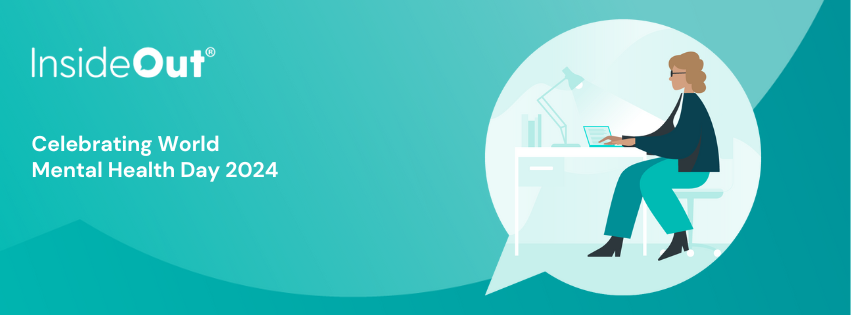Gratitude is Good
Many studies have shown that practising daily acts of gratitude can have a positive impact on our mental and physical health. Academic Robert Emmons has for years been writing about the benefits of having a regular gratitude practice. In his essay, ‘Why Gratitude is Good’ (Emmons 2010), Emmons discusses the positive effects of keeping a daily gratitude journal based on a study he and his team conducted.
Stronger Physical and Mental Health
Their findings concluded that by keeping a daily journal and regularly writing down what we are grateful for, we are able to improve our physical and psychological health and our social wellbeing. Acknowledgment of the value of the things that are important to us in our lives, from the people we love and enjoy spending time with, to our fitness regimes and the food and the books we consume, allows us to experience increased happiness and satisfaction. As a result, our immune systems are stronger, we suffer fewer aches and pains, our sleep improves and we have a heightened sense of optimism, happiness, compassion and forgiveness. We also suffer less from loneliness.
We’re Not Seeking Perfection
When journaling, the important thing to recognise is that our lives don’t have to be perfect in order for us to show gratitude. The act of writing a journal entry is an affirmation that there are good elements in our lives, even when things are not going as well as we hope. We might have cause to complain but a daily practice of journaling can serve as a reminder that there is always something in our lives to be grateful for, which we must not take for granted.
Increased Productivity: Better Employees
Many studies (Yu Komase, J Occup Environ Med 2019; Kathryn Adair, J Med Internet Res 2020 ; We Thrive: June 2020; Michael Ford, J Occup Health Psychol 2018) have proven that demonstrating gratitude at work produces increased levels of positivity within the workplace and among colleagues, making for a much more optimistic workforce. Staff who show gratitude towards their managers and each other are more likely to be engaged by the work that they do, have increased productivity, strong performance and are less likely to take sick leave.
Gratitude is An Antidote to Aggression
Equally, some studies (Rebecca Solom, J Pos Psychol 2017) have shown that a happy work environment could be injected with toxicity when it is inhabited by staff who possess characteristics of ‘narcissism, cynicism, materialism/envy, and indebtedness’ which are ‘Traits that inhibit gratitude’. In other words, when staff demonstrate gratitude they are more likely to show empathy towards their colleagues and have lower levels of aggression.
Furthermore, C. Nathan DeWall et al. (2012) conducted several scientific studies to demonstrate that gratitude can serve to remedy aggressive attitudes:
… gratitude is an antidote to aggression. Gratitude motivates people to express sensitivity and concern toward others and to behave compassionately toward benefactors or uninvolved third parties. Aggression runs counter to the motivation to show empathic concern and compassion toward others. (2012: 238.)
Better Sleep
Journaling can also aid sleep. Multiple studies (Alex Wood, et al., J Psychosom Res 2009; Brandon Specktor 2018; Anna Alkozei, Behav Sleep Med 2017) have shown that having a deeper sense of gratitude can bring about restful sleep, promote better sleep quality and help us wake up feeling well rested and more able to tackle what our day will bring. Writing down a list of positive affirmations before bed can help to ‘clear our headspace’ to make way for a more relaxing night’s sleep.
Get Writing Your Gratitude Journal!
There is such an extensive body of evidence to support the view that journaling can help us in so many ways, that it begs the question, ‘What are we waiting for?’. Let’s all get writing our gratitude journals to remind ourselves that there are great things in our lives for which we must be grateful. Affirming that we are thankful can help us develop a more positive attitude, allowing us to sleep better and be more empathic. Gratitude even promotes our curiosity and creativity, helping us function to an optimal level.
References:
- Alex Wood, Stephen Joseph, Joanna Lloyd, Samuel Atkins, J Psychosom Res, 2009 Jan;66(1):43-8: https://pubmed.ncbi.nlm.nih.gov/19073292/.
- Anna Alkozei, Ryan Smith, Megan D. Kotzin, Debby Waugaman, William Killgore, Behav Sleep Med, Jan-Feb 2019;17(1):41-48: https://pubmed.ncbi.nlm.nih.gov/28128978/.
- Brandon Specktor, ‘Writing a To-Do List Before Bed Could Help You Sleep’, Live Science, January 13, 2018: https://www.livescience.com/61422-journal-writing-sleep-better.html.
- C. Nathan DeWall, Nathaniel M. Lambert, Richard S. Pond, Jr, Todd B. Kashdan, and Frank D. Fincham , ‘A Grateful Heart is a Nonviolent Heart: Cross-Sectional, Experience Sampling, Longitudinal, and Experimental Evidence’, Social Psychological and Personality Science 3(2) 232-240, 2012: http://www.fincham.info/papers/2012%20Gratitude%20and%20Violence%20Social%20Psychological%20and%20Personality%20Science.pdf.
- Kathryn Adair, Larissa Rodrguez-Homs, Sabran Masoud, Paul Mosca, J. Bryan Sexton, ‘Gratitude at Work: Prospective Cohort Study of a Web-Based, Single-Exposure Well-Being Intervention for Health Care Workers’, J Med Internet Res, 2020 May 14;22(5): e15562.
- Michael Ford, Yanxia Wang, Jiafei Jin, Robert Eisenberger, ‘Chronic and episodic anger and gratitude toward the organization: Relationships with organizational and supervisor supportiveness and extrarole behavior’, J Occup Health Psychol, 2018 Apr;23(2):175-187: https://pubmed.ncbi.nlm.nih.gov/28191999/.
- Rebecca Solom, Philip Watkins, Duncan McCurrach, and Daniel Scheibe, ‘Thieves of thankfulness: Traits that inhibit gratitude’, The Journal of Positive Psychology, Volume 12, 2017, Issue 2: https://www.tandfonline.com/doi/abs/10.1080/17439760.2016.1163408.
- Robert Emmons, ‘Why Gratitude Is Good’, Greater Good Magazine, November 16 2010: https://greatergood.berkeley.edu/article/item/why_gratitude_is_good.
- Team WeThrive, ‘The power of gratitude in the workplace’, June 16 2020: https://wethrive.net/blog/power-gratitude-workplace/.
- Yu Komase, Kazuhiro Watanabe, Kotaro Imamura, Norito Kawakami, ‘Effects of a Newly Developed Gratitude Intervention Program on Work Engagement Among Japanese Workers: A Pre- and Posttest Study’, J. Occup Environ Med, 2019 Sep;61(9):e378-e383: https://pubmed.ncbi.nlm.nih.gov/31306267/.
Author: Alisa Salamon, Life Coach at InsideOut






